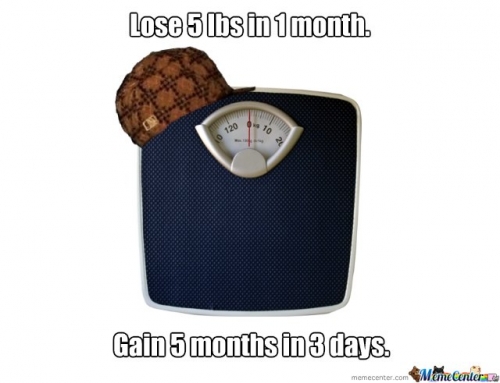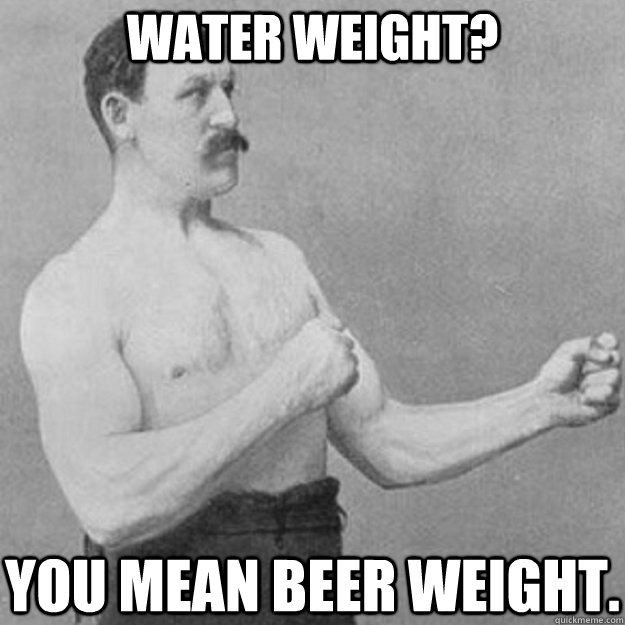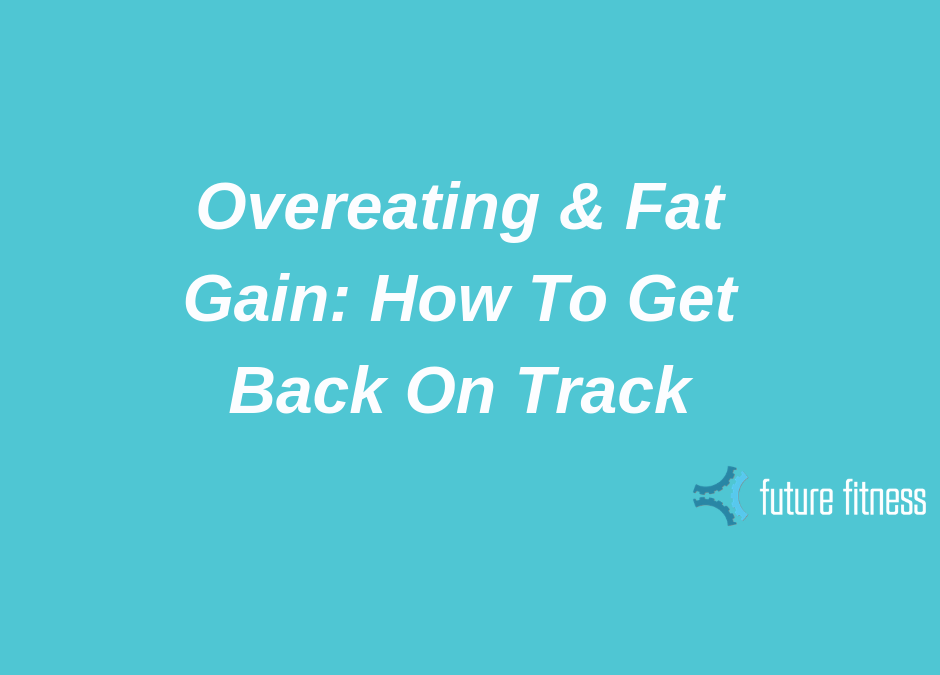You went back for seconds.
For dessert you had a little taster of the cake.
It was amazing so you ate another large slice.
You ate all the nice chocolates out of the box of Rose’s.
Then you had a couple of the not so nice leftover ones just because they were there and you were bored….
But now it’s time to get back on track…
You step up onto the scale and your weight has rocketed up….

When we see this number on the scale, we go into panic mode, thinking we’ve ruined all our progress and we associate this number with being all fat gain.
How could I put on that much weight so quickly??
It took me months to lose that weight, how could I put it all back on so fast?

CALM DOWN!
TAKE A FEW DEEP BREATHES!
Let me explain why you are seeing this number and why you shouldn’t be too worried because it’s not all fat gain;
FAT GAIN
– To gain 1 pound of fat you need to overeat by somewhere between 3,436 to 3,752 calories.
– 100% of those extra calories taken in would have to be stored directly as fat which is almost impossible.
EXAMPLE (using 3,500 calories as 1 pound of fat)
You go away for 2 days and eat and drink anything you want.
You’ve gained 5 pounds on the scale.
3,500 x 5 = 17,500 calories.
You need to have OVEREATEN by 17,500 calories to have a chance of that being fat gain. That’s 17,500 calories on top of your maintenance calorie intake which is the amount of food you can eat and still maintain your weight. So were talking consuming over 20,000 calories over 2 days.
Consuming that many calories over 2 days is highly unlikely and would be an achievement in itself!!
So where does this weight gain come from?
- Water Retention
When we overeat, all those extra calories coming into the body bring water along with it.
Every gram of glycogen is stored with approximately 3 grams of water.
When we overeat it usually comes from mainly carbohydrate and fat sources.
Anyone who suddenly increases their carbohydrate intake can experience an increased uptake of glycogen and water into the tissue, increasing total body mass.
An extra 500 grams of carbohydrates will be accompanied by 1500 grams of water. This equates to around 2kg (4.4 pounds) increase in total body mass.
Water retention also causes that ‘feeling fat’ effect that we experience after overeating. This feeling combined with the number on the scales can reinforce our belief that it’s all fat we’ve gained.

- Bloating
When we consume large amounts of food, it becomes harder for the body to digest and break it down.
This can cause an increased amount of gas in the intestines.
We often experience this when we are stuffed from food, along with stomach cramps and abdominal discomfort.
This bloating can cause an increase in total body mass and the number you see on the scale.

- Excess sodium intake
We don’t tend to overeat on the ‘clean’ foods, you don’t often hear about people overeating on chicken and broccoli.
The foods we tend to overeat on are usually high in sodium.
This sudden increase in sodium consumption causes the body to hold extra fluid in the cells.
This water retention will cause an increase in total body mass and the number you see on the scale.
How to get back on track?

By concentrating on using these simple strategies for the first few days, it can really help you get rid of that excess water and bloating and get you back feeling good again;
- Increasing Water Intake
It sounds counter intuitive but drinking more water is one of the best ways of dealing with water retention.
A well hydrated body is less likely to retain water.
Chances are your water intake has been poor over this overeating period leaving you dehydrated.
Increasing your usual water intake (up to double) for the first couple of days can help to speed up the elimination of excess salt and water from the body.
- Loading up on fruits and vegetables
Fruits and vegetables are loading with vitamins and minerals which help remove excess water in the kidneys by eliminating the waste.
Fruits and vegetables are high in fiber which helps the body to remove toxins.
Focus on eating more vegetables than usual at each meal and make sure your getting enough fruit in to your daily diet.
- Lean Protein sources
No matter if we are looking to lose fat or build muscle, adequate protein is essential to reaching these goals.
Eating lean protein sources such as Turkey and chicken are not as hard to digest as other more fatty meats and will be lower in calories which will help keep your daily total calorie intake down while helping you feel fuller for longer.
Try to have some lean source of protein at each meal throughout the day.
By concentrating on these things for the first few days you should see your weight come back down and normalize BUT be patient it may take up to 7-10 days to go back down depending on the individual.
Ready to Begin Your Transformation Journey?
Join our online coaching programme

